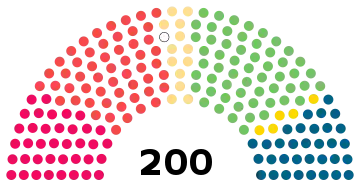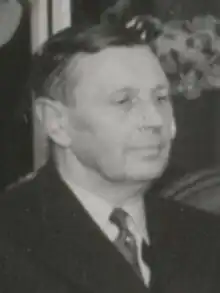| |||||||||||||||||||||||||||||||||||||||||||||||||||||||||||||||||||||||||||||||||||||||||||||||||||||||||
All 200 seats in the Parliament of Finland 101 seats needed for a majority | |||||||||||||||||||||||||||||||||||||||||||||||||||||||||||||||||||||||||||||||||||||||||||||||||||||||||
|---|---|---|---|---|---|---|---|---|---|---|---|---|---|---|---|---|---|---|---|---|---|---|---|---|---|---|---|---|---|---|---|---|---|---|---|---|---|---|---|---|---|---|---|---|---|---|---|---|---|---|---|---|---|---|---|---|---|---|---|---|---|---|---|---|---|---|---|---|---|---|---|---|---|---|---|---|---|---|---|---|---|---|---|---|---|---|---|---|---|---|---|---|---|---|---|---|---|---|---|---|---|---|---|---|---|
| |||||||||||||||||||||||||||||||||||||||||||||||||||||||||||||||||||||||||||||||||||||||||||||||||||||||||
| |||||||||||||||||||||||||||||||||||||||||||||||||||||||||||||||||||||||||||||||||||||||||||||||||||||||||
 |
|---|
Parliamentary elections were held in Finland on 1 and 2 July 1948.[1]
Background
The political atmosphere during the July 1948 Finnish parliamentary elections was heated. Many Finns across the party lines believed that the Communists and People's Democrats had pursued their goal of making Finland a solidly left-wing country too vigorously. They had even held the Prime Ministership since March 1946, with Mauno Pekkala serving in that position. They had organized many mass meetings, demanded the dismissal of "reactionary" (especially right-wing) civil servants and claimed that the Finnish government had to adopt even a friendlier relationship with the Soviet Union. They had vigorously supported the imprisonment of eight former top politicians, including former President Ryti, for "war guilt" (making decisions that resulted in the Continuation War of 1941 to 1944 between Finland, the Soviet Union and Germany). In the spring of 1948, there were even unproven rumours of an imminent coup attempt by the Finnish Communists. Some Finnish war veterans condemned the Communist Interior Minister Yrjö Leino for deporting to the Soviet Union Ingrian Finns, East Karelians and Estonians who had fought in the Finnish army during the Continuation War. The controversy over the treatment of these "prisoners of Leino", several of whom were Finnish citizens forced Leino to resign in May 1948. The Social Democrats election slogan was: "Enough Already: Price Hikes, Lying Promises, Opinion Terror and Forced Democracy." The Agrarian election slogan was: "On These Leans the Agrarian Union" under the Bible and the Finnish law. The National Coalitioners declared simply: "Be Free." These traditional democratic parties gained a total of 16 deputies in the election, while the Communists lost 11, compared to the 1945 election. After the election, the Finnish politics began to stabilize. The United States appreciated Finland's desire to remain a Western democracy, despite its close relationship with the Soviet Union, symbolized by the Friendship, Co-operation and Mutual Assistance Treaty (FCMA), which was signed in April 1948. After these parliamentary elections, the Social Democrats formed a minority government under Prime Minister Karl-August Fagerholm. They did not want to form a government with the Agrarians, claimed the late veteran Agrarian-Centrist politician Johannes Virolainen, because they feared that they would lose votes to the Communists in the next election. The Agrarians quietly supported Fagerholm's government.[2][3][4]
Results
Summary
 | |||||
|---|---|---|---|---|---|
| Party | Votes | % | Seats | +/– | |
| Social Democratic Party | 494,719 | 26.32 | 54 | +4 | |
| Agrarian League | 455,635 | 24.24 | 56 | +7 | |
| Finnish People's Democratic League | 375,538 | 19.98 | 38 | –11 | |
| National Coalition Party | 320,366 | 17.04 | 33 | +5 | |
| Swedish People's Party | 137,981 | 7.34 | 13 | –1 | |
| National Progressive Party | 73,444 | 3.91 | 5 | –4 | |
| Åland Coalition | 6,567 | 0.35 | 1 | New | |
| Small Farmers Party | 5,378 | 0.29 | 0 | 0 | |
| Radical People's Party | 5,162 | 0.27 | 0 | 0 | |
| Others | 5,178 | 0.28 | 0 | – | |
| Total | 1,879,968 | 100.00 | 200 | 0 | |
| Valid votes | 1,879,968 | 99.27 | |||
| Invalid/blank votes | 13,869 | 0.73 | |||
| Total votes | 1,893,837 | 100.00 | |||
| Registered voters/turnout | 2,420,287 | 78.25 | |||
| Source: Tilastokeskus 2004[5] | |||||
By electoral district
| Electoral district | Total seats |
Seats won | ||||||
|---|---|---|---|---|---|---|---|---|
| ML | SDP | SKDL | Kok | RKP | KE | ÅS | ||
| Åland | 1 | 1 | ||||||
| Central Finland | 11 | 4 | 3 | 2 | 2 | |||
| Häme | 11 | 2 | 4 | 2 | 3 | |||
| Kymi | 32 | 12 | 10 | 3 | 6 | 1 | ||
| Lapland | 8 | 4 | 1 | 2 | 1 | |||
| North Karelia | 10 | 4 | 4 | 1 | 1 | |||
| North Savo | 11 | 4 | 2 | 4 | 1 | |||
| North Vaasa | 8 | 3 | 1 | 1 | 1 | 2 | ||
| Oulu | 17 | 8 | 2 | 5 | 1 | 1 | ||
| Pirkanmaa | 12 | 1 | 5 | 3 | 3 | |||
| Satakunta | 13 | 3 | 4 | 3 | 3 | |||
| South Savo | 11 | 5 | 4 | 1 | 1 | |||
| South Vaasa | 10 | 3 | 1 | 1 | 2 | 3 | ||
| Uusima | 31 | 1 | 9 | 6 | 6 | 7 | 2 | |
| Varsinais-Suomi | 14 | 2 | 4 | 4 | 2 | 1 | 1 | |
| Total | 200 | 56 | 54 | 38 | 33 | 13 | 5 | 1 |
| Source: Statistics Finland[6] | ||||||||
References
- ↑ Nohlen, D & Stöver, P (2010) Elections in Europe: A data handbook, p606 ISBN 978-3-8329-5609-7
- ↑ Seppo Zetterberg et al., eds., A Small Giant of the Finnish History / Suomen historian pikkujättiläinen, Helsinki: WSOY, 2003
- ↑ Pentti Virrankoski, Finland's History 1&2 / Suomen historia 1&2, Helsinki: Finnish Literary Society / Suomalaisen kirjallisuuden seura, 2009
- ↑ Johannes Virolainen, The Last Electoral Term / Viimeinen vaalikausi, Helsinki: Otava, 1991
- ↑ Tiedosto "595. Eduskuntavaalit 1927–2003 (Tilastokeskus 2004)
- ↑ Suomen virallinen tilasto XXIX A:21: Eduskuntavaalit vuonna 1948. Statistics Finland. 1949.


.JPG.webp)
.jpg.webp)

